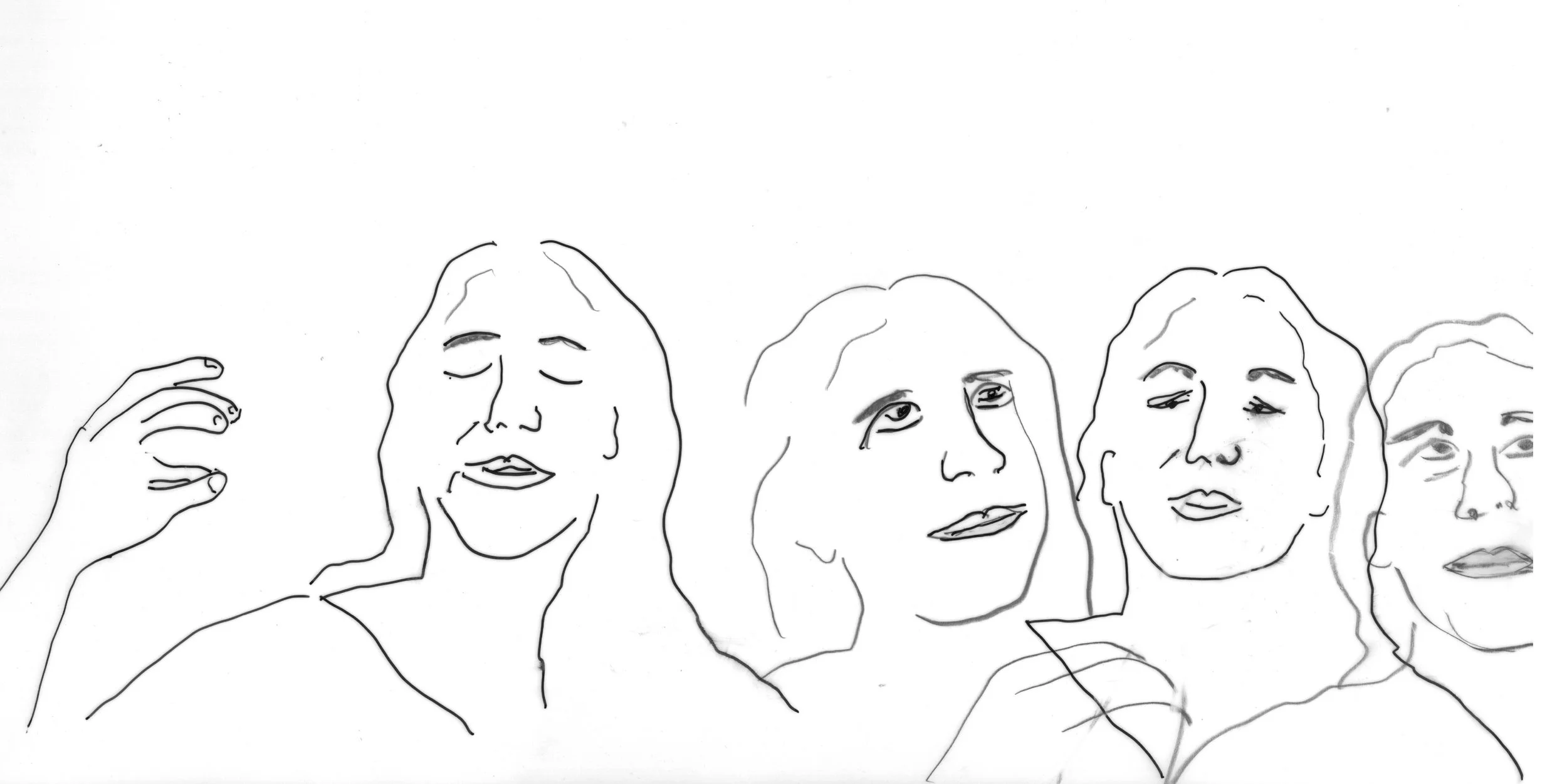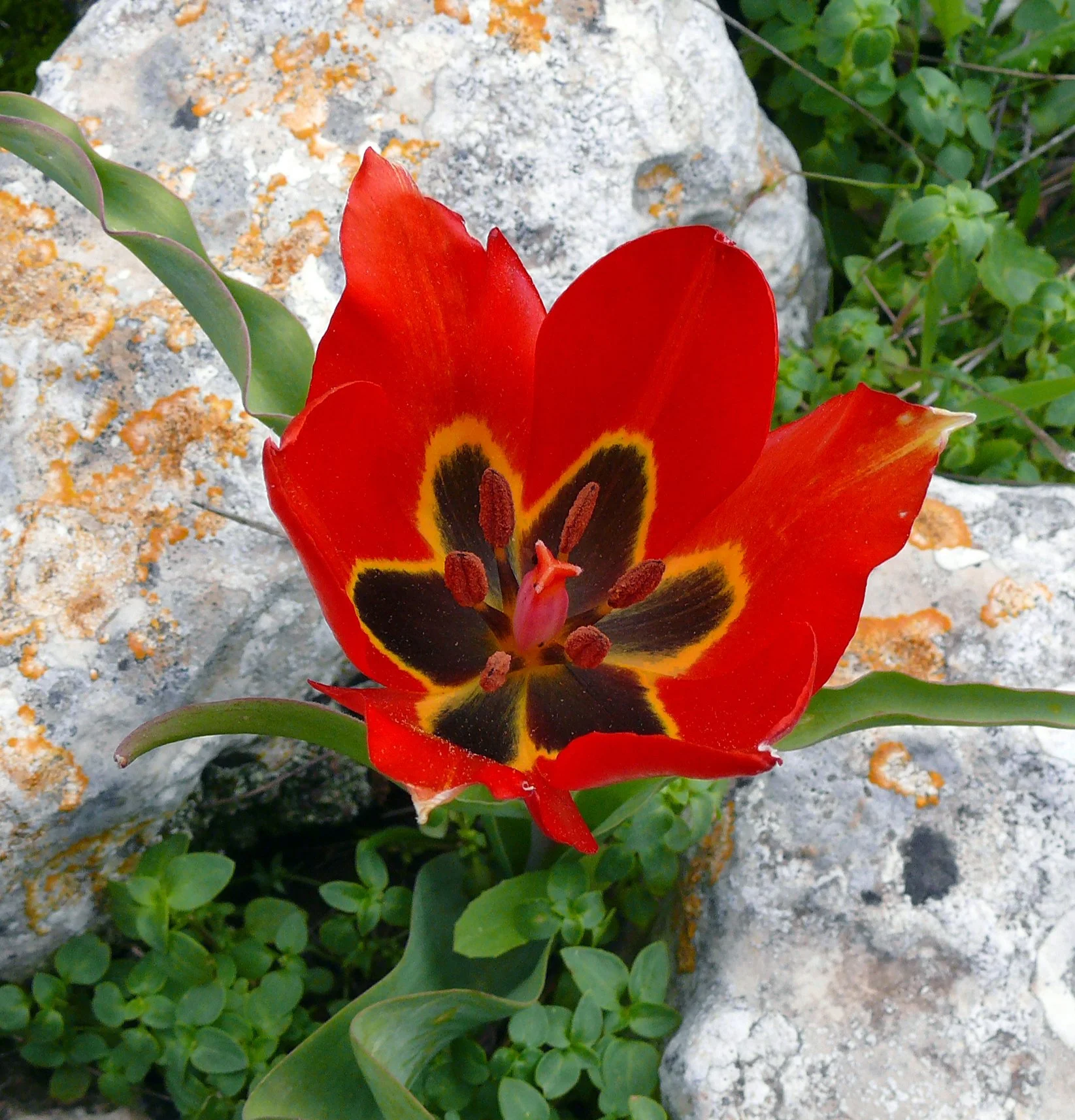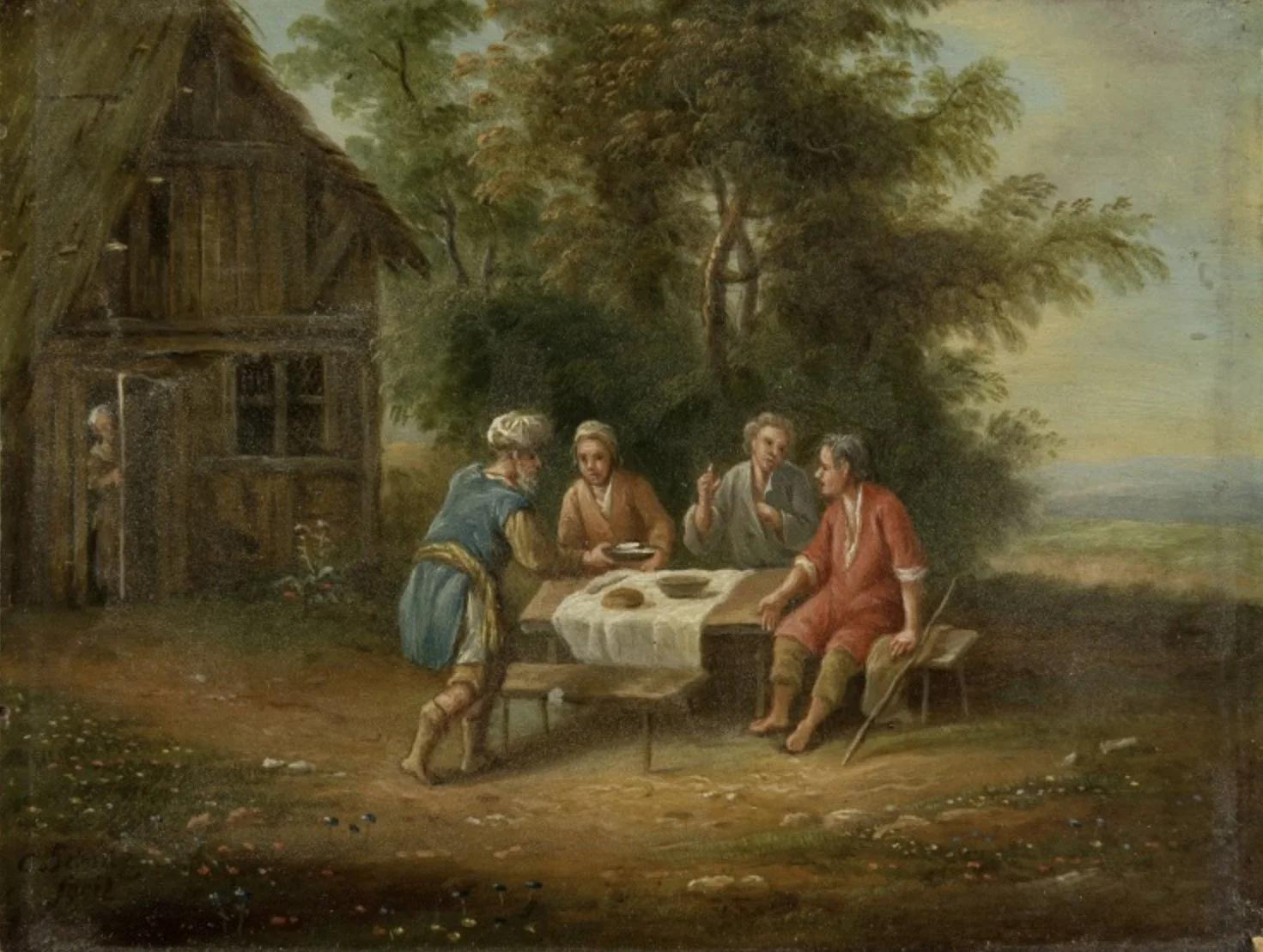Khatol, a beautiful flower that blooms in the spring
Khatol telling a story… LSdrawing2025
It was the luck of the draw. I was matched as a tutor for an Afghani woman named Khatol, who arrived last November in Northern California with her husband, Sekandar, who’d worked as a civil engineer in Afghanistan with the U.S. Army Corp of Engineers— and their three young children (13, 9, and 3 years-old).
The family left Kabul for Germany in 2020, so that Sekandar could pursue his PhD in Civil Engineering at the University of Stuttgart. They’d always planned to return to Afghanistan, to serve their country when Sekandar finished the degree. With the Taliban takeover in August 2021, however, there was no going back. A former supervisor for one of Sekander’s jobs reached out, and offered to sponsor the family. After completing his PhD. In 2024, they were admitted to the U.S. with a special immigration visa. They now hold green cards. The two older children are already thriving in school, quickly absorbing English.
Our plan was to meet on Zoom every week for ten weeks. The intention of our sessions was to assist Khatol, the new arrival, with her English, to help her navigate life in a new country.
In her native Kabul, Khatol was an OB/GYN, work that she loved. Now she is studying for her U.S. medical boards. She and her husband speak Dari at home, wanting their kids to maintain their native tongue. She didn’t have anyone to speak English with during the week; she needed practice to be confident enough to enroll in an ESL class.
We began working together in late spring. As the weeks went on, it was clear— as far as learning goes — that our encounters were a two-way street. I so looked forward to our weekly meetings; a counterweight to my despair in this noxious anti-immigrant climate.
Some journal notes below.
May 27, 2025
Morning tutoring session with Khatol. I asked her to read a NYT piece about research on the consequences and benefits of delaying menopause. We had a spirited discussion about ovaries and the pituitary. She’s much more fluent when we discuss female physiology. She’s conversant with so much medical terminology and has such a deep interest in women’s health.
June 18, 2025
The good folks in International Languages at LAPL found a book with poems in both Dari and English. One poem was about a homeless child selling cheap imported goods on a bus in Kabul. Khatol read the poem in Dari for me, so musical in the original. Why are there homeless children on the streets of Kabul? Because of the bombs, Khatol says simply. Perhaps their parents are dead from the bombs. And they must support their brothers and sisters. That is why they are selling gum on the bus.
June 24, 2025 Spent all morning trying to find the right short story to read together with Khatol. Maybe Chekhov? Joyce’s Dubliners? Grace Paley? I settled on an anthology of fiction by Afghan women, called My Pen is the Wing of a Bird. It’s a snapshot of Afghanistan before the Taliban. Some of the 18 writers are from rural areas; most of the writers who contributed had never been published before. I try to pick a story that isn’t too gory. I worry it could be triggering. But this is a tough woman… she’s been through a lot.
For our first story, we read “My Pillow’s Journey of Eleven Thousand, Eight Hundred, and Seventy-Six Kilometers,” by Farangis Elyassi (trans. from the Dari by Zubair Popalzai) , about what one Afghan emigree did and did not take on her journey to her new life in the States.
She’d had a good life in Afghanistan; a job she loved as a defense lawyer with a foreign organization. “Eventually, war and insecurity forced us, like so many others to leave. My husband made the decision that we should become immigrants. I wasn’t happy at all.” Once in her new country, sleep eludes her. “For a whole year in a strange country I slept without my pillow. Perhaps I should say I stayed awake for a year without my pillow. At night I would remember happy days back in my country and wonder if it would ever be possible to have that feeling here. Sometimes I would lie awake worrying about the safety of my family back home.” She thinks it is the lack of her dear old pillow that makes it impossible for her to find peace, rest, in her new life. In the end, even after a return to visit family, and retrieving her pillow, she’s still unable to find peaceful sleep. She realizes that such peace is the result “of a sense of freedom one can feel only in one’s own country.” After we read the story, I ask Khatol about her own sense of discomfort with exile. Her reply, “I am neither happy nor sad.”
In the story, the protagonist mentions bombs going off outside the courthouse where worked as an attorney, how frequently people were “always checking on their loved ones.” Khatol told me how once, when she was finishing up a Caesarean delivery in the hospital in Kabul, there was an explosion nearby that shattered all the windows . The electricity went out. By the light of a candle, Khatol finished suturing her patient. There was no question she would stay beside her, because, “How could you leave a woman alone at a time like that?”
July 1, 2025
Yesterday we discussed some difficult-to-pronounce English words. Like ARCHIVE and ACCOLADE. Somehow we ventured into a discussion of the Hippocratic Oath and the meaning of the caduceus. I showed her my dream drawing of a woman with a snake wrapped around her… which is really a diagram of the caduceus. This isn’t a familiar symbol to her. Further research tells me that the caduceus comes out of the Latin/Greek tradition (symbol of Hermes); it became a symbol of alchemy and pharmacy in medieval Europe. Apparently, not in Afghanistan.
July 8, 2025
I thought I was too tired to have a tutoring session tonight; but we went ahead anyway. It was wonderful. We are reading our second story, “Ajah,” by Fatema Khavari (trans. from Dari by Zubair Popalzai) from the anthology.
Ajah Ayyub is orphaned as a seven-year old; her parents both die from an outbreak of tuberculosis in the district, She is taken in and cared for by a kind imam, the only one in the village brave enough to help her bury her parents.
The imam’s wives resent Ajah because the husband of the house loves her like the daughter he never had. He marries her off at age 9 (Khatol tells me this is not according to Koran). She doesn’t conceive for years. Her mother-in-law, a midwife, wants an heir. She takes for her son another wife—the beautiful Leila. But Leila doesn’t conceive either. It turns out that infertility is the son’s problem. (How often do we ever read about male infertility… and in an Afghan short story?)
When the husband decides to seek treatment, he travels to see the doctor in another province. En route, he falls off a cliff and breaks his neck. Leila the second wife abandons him; but Ajah tends her disabled husband for the rest of his life. After his death, she becomes a figure of much authority in her village. She’s bought land with an inheritance from the imam, she knows how to farm. “She planted more trees on the hectares of land she had inherited. She filled her orchard with every variety of fruit tree in the province. Her almonds, peaches, nectarines, and apples grew fat on their branches and alongside them she grew all kinds of berries, black and red and white. Ajah’s orchard became famous throughout Balkh province. It could be clearly seen from the very top of Shah Alborz Mountain.”
The story is set in 1940; the Afghan government has just instituted conscription for all able-bodied males. Women, children, old people are left to tend to the animals and farm the land on their own. Then an earthquake strikes. “Her beloved walnuts now stood with their roots exposed. She had wanted to grow old with them.” Ajah climbs the slopes of the mountain to harvest a medicinal plant called badrah, and from on high, she sees what the earthquake has done to the village: “A fissure now ran all the way down from the foot of the mountain to her village.” She understands the danger of flash floods. “Look up there,” she says to a fellow villager, pointing towards the slope. “Imagine what will happen when the snow melts and the water runs off the slopes into that gully.” No one believes her at first, so on her own, with a pickaxe, she sets off with her donkey early in the morning up the slopes of the mountain, and begins to dig a channel. Some of the women in the village join Ajah in digging the channel. They leave their young sons to plow the land, and they appoint the elderly men to teach them how. Eventually, all the women join her, wielding their pickaxes and digging. The village is saved from flooding. Ajah is an eco-hero.
Khatol reads so beautifully when she’s had a chance to read the text in advance, as she’s been doing all week.
The story mentions many traditional dishes like chakka, roghan-e zard, pateer breads. Ajah wears a “beautiful arqchin hat.” Khatol says that when I come to visit her, which I promise to do, she will make me traditional Afghan food. I also learned that the word “khatol” is the name of a flower that only blooms in the spring.
khatol, a beautiful flower that blooms in the spring in Afghanistan
July 29
I have missed hearing dear Khatol's voice; I was traveling last week. She's been studying though; practicing irregular verbs and finishing on her own the story from the anthology. Our hour sessions go by so quickly. Sekander now has a full time job as a civil engineer for a small company. So we'll change the time of our meetings to 6:30 PM so Khatol can make dinner for the kids. All three children have beautiful names.
August 6, 2025
Khatol and I were discussing today the many overlapping stories between Islam and Judaism. I asked her to tell me the story of Abraham from the Koran.
She grows so animated as she tells me the story… sometimes tossing her long dark hair over her shoulder. I love her laugh, the sparkle in her eyes; she even giggles at parts of the story. She tells me how people made statues to the Sun God and the Moon God…the Fire God. how Abraham asked, since the statues did not speak, did not answer questions—why did people believe in them? Abraham, she remarks, is a man who thinks for himself. He takes a pick-axe (how did she know that word? Ah, now I remember, it was in the story about Ajah) and smashes all the stone idols. Then the evil cruel king Nimrod (she pronounced most charmingly, Nimrood) orders his soldiers to build a great bonfire to burn this infidel, and as the soldiers light the pyre, two angels – and she gestures upwards— rise out of the flames to bear Abraham aloft. Ascension. I found an image of Abraham in the Genesis version (ch. 18), entertaining three angels, not two, under the shade of a tree, in a painting by an 18th c. Flemish painter. In this painting, Sarah—an old woman— looks shyly at the group outside, from the doorway of a dilapidated wooden house. Sarah’s laugh (when she learns she will bear a child in her old age) is the first recorded laugh in the Old Testament.
painting by Flemish artist Willem Jacob Herreyns
August 19 2025. My sessions with Khatol ended this week. She now has the confidence, Sekandar wrote, to begin ESL classes at the local community college in Sacramento. She is so motivated to learn. I have no doubt that she’ll pass those medical boards in a few years. And that she’ll be a very fine doctor indeed; lucky those who will have the benefit of her knowledge and compassion.
My first Afghani friend.
Note:
I met Khatol thanks to Mirys List, founded in 2016 by Miry Whitehill, a remarkable nonprofit which provides a way for people to directly assist new arrival refugee families with the incredible challenges of resettlement in the U.S. “The reality is we need each other,” Whitehill notes. Since its founding, Miry’s List has engaged 256,000 Americans to support over 1,000 families who have come through the Federal Refugee Resettlement program from countries including Afghanistan, Iraq, Iran, Moldova, Syria, and Ukraine.
If you’ve wondered what you can do to help refugee families seeking a safe haven from violence and persecution in their home countries, check out Mirys List and find out what people need to get started in their new lives, from diapers to beds to cleaning supplies, to a friendly face on the other side of Zoom reading a short story! Or check out their New Arrivals Supper club to taste some wonderful new dishes lovingly prepared. Welcome the Stranger.


